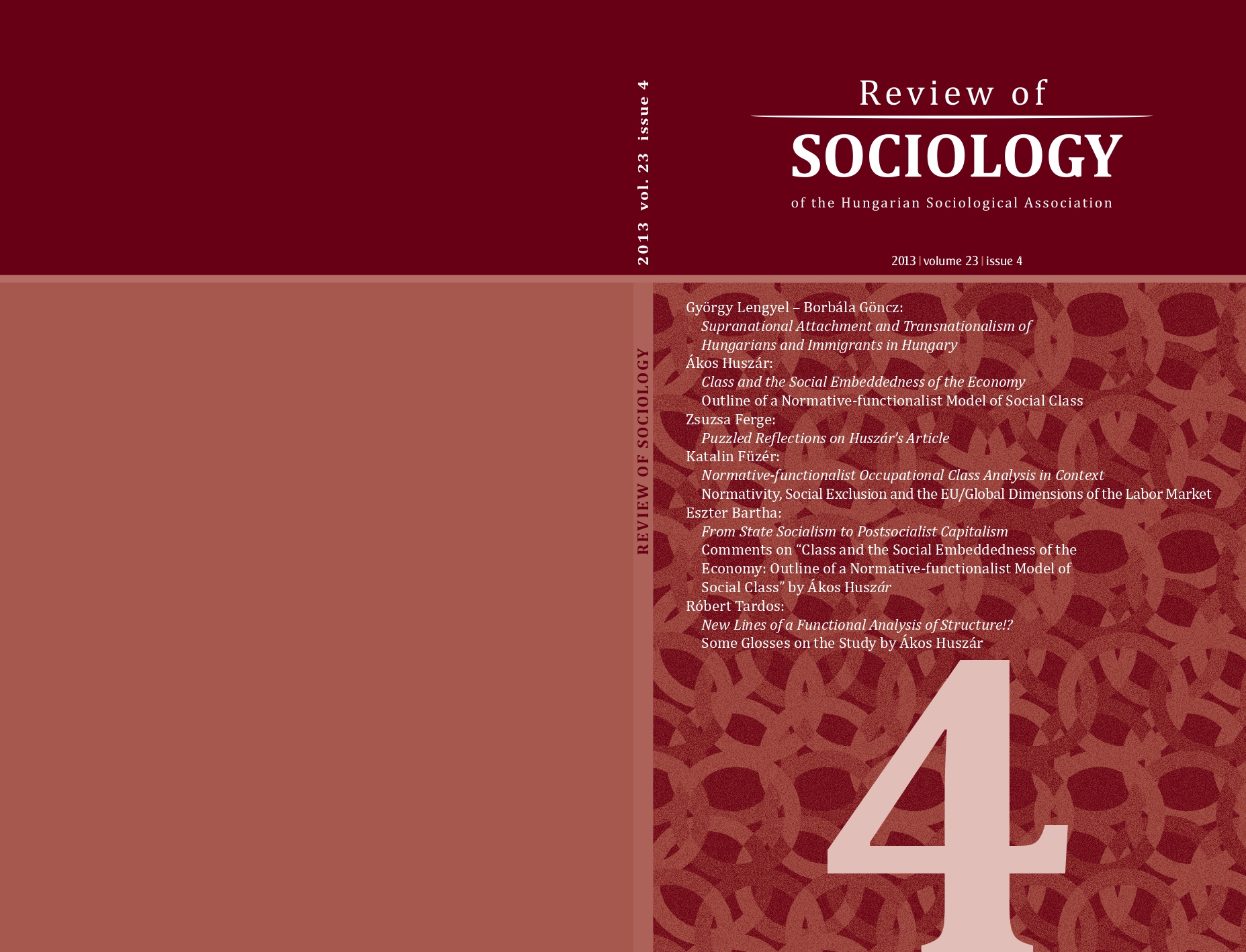Supranational Attachment and Transnationalism of Hungarians and Immigrants in Hungary
Absztrakt
The concept of European identity – problematic as it is – has been amply dealt with in relation to different segments of society. From the perspective of their attachments, third-country immigrants form an interesting population: in balancing between identification with their country of origin and their country of residence, literature indicates that it might be more natural for them to feel part of a transnational social space, such as Europe. In this paper we compare the Hungarian public and third-country immigrants according to their attachment to Europe. Besides transnational embeddedness, different forms of acculturation and social status are also taken into account in the analysis as important determinants of supranational identification. Third-country immigrants are “supposed” to have more transnational ties than the receiving population, and, in opposition to international trends, in Hungary they are also in a better position in terms of their cultural and material resources which makes them more likely to have supranational attachment. However, our findings (based on empirical surveys carried out in 2011) show that, despite their higher transnational involvement, immigrants are less attached to Europe than the receiving population. It seems that the link between “Europeanness” and transnationalism is not as straightforward as expected.





